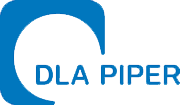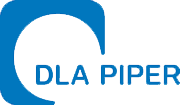Legal Alert: Ministry of Health introduces e-commerce in medicines

May 8, 2020 / By Paulo Larraín y Tomás Muñoz
On May 7, 2020, it was published in the Official Gazette Decree No. 58 of 2019 of the Ministry of Health, which entered into inmediate force. This regulation introduces electronic commerce of drugs and allows pharmacies to sell them through electronic means, complying with the requirements established for such purpose, i.e. the provisions that regulates authorization of these activities, home delivery, information to patients, data protection and permitted advertising.
Amendments introduced to Decree 466/1984 of the Ministry of Health (Regulations on Pharmacies, Drugstores, Pharmaceutical Stores, First Aid Kits and Authorized Warehouses), please note the following:
- Sale of drugs by electronic means: The Institute of Public Health must authorize the sale of drugs by electronic means.
- Authorization requirements: In order to authorize the abovementioned sale, the Institute of Public Health will verify that the applicant: (i) is authorize to operate, (ii) has a website that allows the marketing of the products and, (iii) has a delivery service (direct or by third party).
- Commercialization conditions: This is related to the prescription some drugs require prior to sale. Direct sale does not require the exhibit of prescription; however, “simple prescription” and “retained prescription” must exhibit the prescription when purchasing, in digital form. At the time of delivery, the prescription will be checked and retained, if applicable. Medications requiring a “receta cheque” cannot be issued by e-commerce.
- Bioequivalent drugs: All e-commerce of pharmaceutical products must provide alternatives to bioequivalent products.
- Delivery of drugs: Must fulfill security requirements such as correct sealing and labelling, certain basic information of the customer and, provide certainty that the product will not be damaged or altered. Third parties may provide delivery services to authorized establishments for e-commerce, but all liability will be allocated in the latter.
- Return: Return of products must be informed according to the Consumer Protection Law.
- Information of the drugs: The Decree indicates the information that must be available to the public in the website regarding the products it markets (i.e, photograph of the product, international common denomination, price, among others). Additionally, the website must promote the rational use of drugs and other warnings.
- Data Protection: The prescription, laboratory tests, clinical information and services related to health information will be confidential and considered “sensible data” according to Law No.19,628, of Data Protection.
- Advertising and presentation of the products: The general rules are maintained in accordance with the provisions of the Health Code and other applicable regulations.
Amendments to Decree 405/1983 of the Ministry of Health (Psychotropic Regulations) and Decree 404/1983 of the Ministry of Health (Narcotics Regulations).
Sale by electronic means of drugs that require a “retained prescription” are regulated by Title IV bis of Decree No. 466, which introduces the aforementioned regulation.
| Contacts |
| For more information, please contact: |
| Paulo Larrain Partner plarrain@dlapiper.cl |
* This report provides general information on certain legal or commercial matters in Chile, and not intended to analyze in detail the matters contained in it, not is it intended to provide a particular legal advice on them. It is suggested to the reader to look for legal assistance before making a decision regarding the matters contained in this report. This report may not be reproduced by any means or in any part, without the prior consent of DLA Piper BAZ | NLD SpA 2020.


